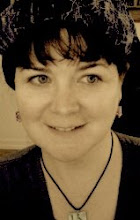Searching around online for more details.... roughly chronological:
*Their parents: William Albertson married Penelope Sutton in August 1800, in Pasquotank Co., NC.More as I find it, but these details paint the beginnings of a picture--Ann was a teen, and Penelope was a bit younger, when they attended the Mordecai school. Two-and-a-half years after she finished school there, Ann married; Penelope waited at least nine years after leaving school to wed, if she ever did. Penelope was interested in the work of a Southern woman poet, enough to subscribe to the publication of her verses. And both young women were involved in a court petition involving slaves in 1826--probably an inheritance, or a sale on their behalf.
*Miss Ann R. Albertson married James S. Relfe on 13 June 1819, and Ann is listed as "the eldest daughter of William Albertson Esq of this city," in the Pasquotank County records. Assuming she was born within two years after her parents' wedding, that makes her 17-19 years old. It also means she was a teenager when she attended the Mordecai school.
*I also find William Albertson as the publisher of a newspaper in Elizabeth City, 1821-1825.
*From the Digital Library on American Slavery, we find petitions from Ann Albertson Relfe, Penelope Albertson, William Albertson, and James S. Relfe, all filed in North Carolina in 1826. The petitions could be any kind of legal request made in court--perhaps all four inherited or sold slaves that year, and the paperwork turns up for that event. (Additionally, an Emeline Albertson and a Benjamin Albertson are also found in 1826 NC filings.)
*Miss Penelope S. Albertson and a Mrs. Priscilla E. Bailey, both of Elizabeth City, are both listed as subscribers to a book, Miscellaneous Poems by Eliza Crawley Murden, published in Charleston in 1827. Mrs. Priscilla E. Bailey was the former Priscilla Brownrigg, and a fellow Mordecai student. (Much more on her when we get to the Bs.) So Penelope was still single in 1827.

No comments:
Post a Comment